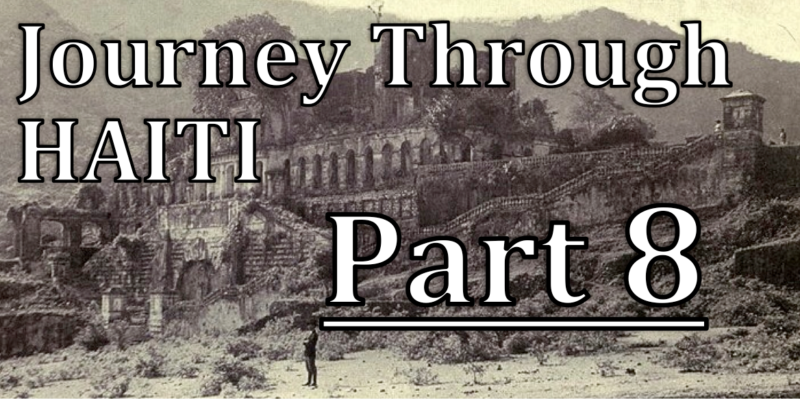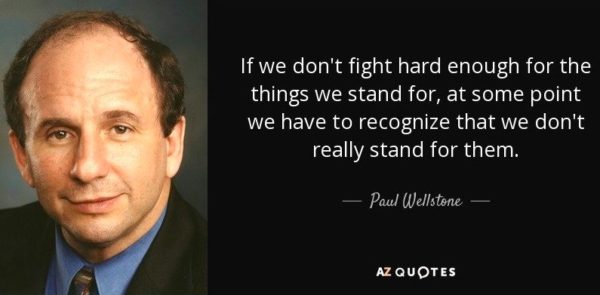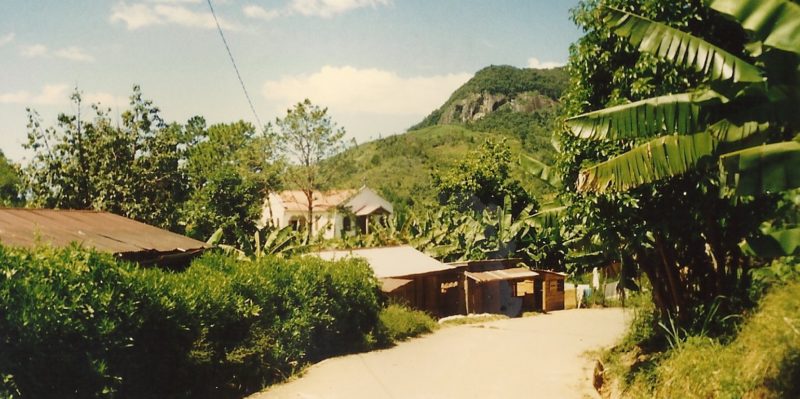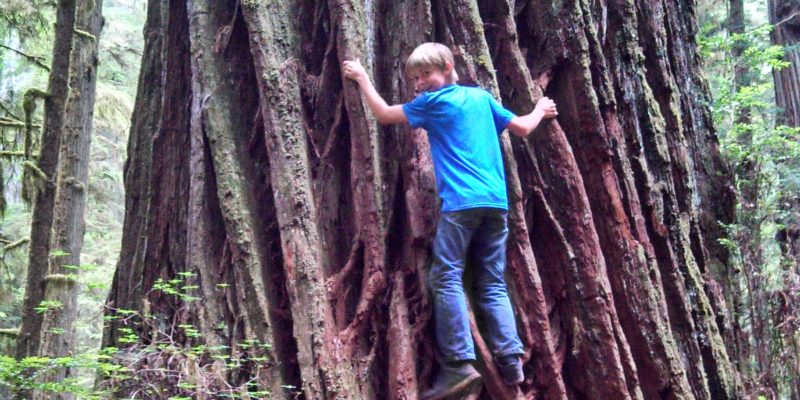The day before I left Port au Prince on my trip south, there was a major police raid in the hills around Petit Goave. They arrested eight bandits who had been setting up roadblocks on the main highway over the previous several weeks and robbing passing vehicles. Perhaps this is why the police were so keen on getting me off that beach where I was sleeping.
You know, I’ve always wanted to go to jail, just once, so I could have a story to share with the jail crowd I tend to hang with. Maybe for something like civil disobedience. The whole time during the ride to police station, I kept thinking about was what a perfect story this will make. Another officer drove the bike to the station, which was in Chardonnieres, a couple of towns to the west. When we got there, they took down my entire story of how I got there. They kept asking me to confirm that I had driven there all alone by myself from Port au Prince.
Anyway, they told me I would get all my stuff back in the morning and that they were keeping me there just for my protection. The chief insisted I sleep in his jail cell on the cot and he found another mattress somewhere that he laid outside on the ground for his bed.
The standards of my Haitian jail didn’t exactly meet American standards. There was a doorway between two jail cells and in this doorway there was a door made of thin welded strips of metal. However, this door was too small for the doorway. So, to keep the metal door from falling into either of the rooms, they had nailed two planks of wood across the width of the doorway, one in each room. To turn off the light, you had to unscrew the light bulb from the socket, which was hot-wired (along with an extension chord) to the wires that ran in through the window.
I told the police I didn’t want to make him leave his room, but he said to me that I was an American and his guest, he was just Haitian, of course I would get the nicer bed. It wasn’t my hammock. However, just about twenty feet from my bed, just few feet beyond my jail cell walls, the waves were crashing against the rocks.
Saturday morning, before saying goodbye to my captors, the chief of police gave me his name and number in case I might get in trouble in some other town. I never found out how they learned I was camping on that beach, but I guess word travels fast in these towns. And that’s also how there were a dozen people gathered around my hammock at midnight when police woke me up.
A few of the towns I passed through had prominent gateways over the road as you entered town. Les Cayes had a wide gateway that spanned four lanes of traffic. On the very top were three giant rings. One of the rings was broken and tipping over. Another much smaller town had a newer looking gateway with little rooms in its base with little windows and doors. As you entered town, it read something like “Southwest Haiti is presented to you by Senator Joe Shmo.” It reminded me of a sign on a bridge in Chicago that reminds motorists who the mayor is. There is nothing like a permanent campaign sign.
Les Cayes reminded me of Galveston, Texas, except that it is nothing like Galveston. Imagine a typical downtown in any small town in America, except expand it to about 200 square blocks, add a healthy dose potholes, make several of the streets gravel, bring in the street vendors, create a ratio of ten motorcycles for every one car, paint advertisements over every inch of each building, then let the paint fade and chip in the tropical sun, put bars on all the windows, insert some worn-out monuments, and have the sandy road to the junky beach run through a shanty village. That is how I first perceived Les Cayes.
The thing that is wrong with this perception is that those shanties are really people’s homes. People were laughing and having fun on that beach. I’m sure somebody is proud of those monuments and people come from all over south Haiti to shop on those streets. At one point this downtown probably looked new. But this is what happens when a government fails, all services we take for granted are lost.
It makes me wonder how financially secure the maintenance schedules are on the infrastructure in the United States. What will become of Detroit if it can’t secure a bigger tax base? Think about how quickly a home in foreclosure can deteriorate when regular maintenance is halted. Haiti has lots of infrastructure, its just that much of it is now beyond needing simple repairs.
I stopped at the southern command for the UN on the way out of town to find out what the UN was doing out here. It was basically an army base. I was told that much of it is to provide security backup and training to police. The day before, as I drove through Petit Goave on my way south, where the bandits were, I remember seeing the convoys of UN troop carriers and assault vehicles. The assault vehicles had slits for the driver to look through and what looked like a turret on a castle sticking up on one side for some gunners to peek out of. It looked quite intimidating. And there weren’t police officers in these vehicles. It’s soldiers, mostly from African countries.
Besides providing security assistance, the UN helps on about every facet of government you can think of, including financial accounting, agriculture planning, tourism, import and export procedures and engineering of roads and bridges.
After my stop at the UN, I found the road that travels northwest over the tall mountains. This was a great road, new, flat and I was the only vehicle in sight. A perfect opportunity to see how fast Jamie’s motorcycle could go. The answer is about 55 mph.
As I ascended, the road passed through deep cuts into the mountain side. Tall retaining walls tilted back at what looked like secure angles. These new cuts reduced the grade of the climb. There was a very significant drainage system on both sides of the road to handle heavy rains and flash floods from the valleys and the road was plenty wide for a passing lane. This was impressive engineering for Haiti.
Further up the mountain, the road was gravel, though it had been graded and had the new drainage system in place. All it was waiting for was pavement. Near the top, the diggers and dump trucks were busy widening the old narrow dirt road. Up here, there is no way to avoid tight curves in the road. I came around a blind corner a tad bit quick and wasn’t able to navigate around the mud pit in the road and my shoe got plastered in thick mud. Around the next bend they were building a narrow two-lane bridge over a river. It wasn’t completed yet. This worked out great because I was able to stretch my foot down and wash all the mud off my shoe as I drove through the river.
Coming down the back side of the mountain there hasn’t been any new roadwork yet and some sections required me to drive in first or second gear to maintain control around the amazingly steep and tight bends. As I drove through a small village called Duchity, my water bottle flew off as I hit a speed bump I failed to see early enough. By the time I realized this and turned back, a lady named Valintine had retrieved it. With the dark rain clouds rolling in and thunder starting to crack, we decided it would be a good idea for me to stay with her family. I made arrangements to pay for food, but she refused any payment for lodging as I was a guest.
Her family consists of her and her sister Madilen (Valentine lost her husband in the earth quake). There was her old frail aunt Melina (her dad’s brother’s wife), Melina’s grandchildren Wedvel and Davidly, and finally Woody (her dad’s other brother’s grandson).
They all had some education and spoke some French and Woody spoke some English. The “guest” house, as the called it had been in the family a while and was much nicer than most Haitian homes. It had a flush toilet (just had to fill the pail from the spigot in the shower and pour it in the bowl, or you could just go outside. They arranged for me to take the full size bed in the only bedroom. There was also a single bed in there too. They said it usually just sat empty, but I didn’t believe it. They wouldn’t tell me who usually slept there.
We played dominoes, which is popular throughout the Caribbean. It was us four guys sitting across from each other with the dominoes board resting on our knees. I learned that there really is skill involved because whomever sat right after me usually won. I slowly picked up on how to play with teams and eventually came close to winning a couple of rounds. I tried to teach them rugby, but since it was raining out, I had limited space in they living room in which to demonstrate rucks and scrums.
For dinner, they served me a big dish of rice and beans and beef, enough for the whole family. They said it was all for me and wouldn’t take any until I had filled my plate and insisted I didn’t want any more. Before bed they served me a dessert made of ground corn, milk and sugar. Again, they said it was all for me, but after eating my share I said I was full and Wedvel eagerly ate the rest.
Later, everybody went over to another house just out back down the hill and I went to my room. After a little bit, I went back out to the living room and found Woody and Wedvel lying on the sofas and Davidly scrunched over in a chair and I told him to go climb into that other single bed in my room, which he promptly did.
That night, I woke to a painfully itchy eye. Because I had left my head lamp back at the jail, there would be no light for me to look at it until the sun came up in the morning. It wasn’t until the morning that I realized I had left a contact lens in my left eye overnight. That should not have been any problem at all except my eyes had an infection. Taking the contact lens out made it feel even worse. I had some antibiotics with me that I had intended to use of I ever got cholera, I took those even though I knew I really needed eye drops with antibiotics. There was no way I could drive back to Port au Prince as my eyes were hyper-sensitive to the sunlight and it was extremely painful to blink. All I could do was to lay in bed all day Saturday and be grateful I had this nice family to look after me. At noon, they came by my room with a bottle of fruit punch and several packages of saltines. My vision in my left eye got worse throughout the day.
The next day when I woke up, my eyes felt fine, although it was as if my left eye was looking through waxed paper and it looked awful. Nonetheless it didn’t hurt any more. So, with one contact in my good eye so I could wear sunglasses, and by squinting a little to keep even more sun out, I felt this might be my best chance to get back to Port au Prince in case my eye started to take a turn for the worse. And so I left Duchity, but not before a quick demonstration of rugby out in the road, while keeping our ears open for the sound trucks racing up the hill. They rip through the town with their horns blasting like train out of control.
The hospitality I received from this extended family unit is something in which Haitians take great pride.
Since it had rained, there were some deep truck tire ruts in the now completely muddy construction zones. The river crossing was now well over my foot rests. And though I was still tempted to stop at Kokoye beach my rational side won that debate and I went straight back to the orphanage guesthouse. I made it back in about six hours. The first order of business was to send an email out to my American contact at the UN and the one who is somehow connected with the President’s cabinet people. I still haven’t met either of them yet.
A quick reply from the latter read “call Dr. Pompee, he will see you first thing in the morning.” It turns out, Dr. Pompee is the government’s health adviser, and I was his first patient on Monday morning. I saw him again on Tuesday as well as Wednesday. Each day my prescription was slightly adjusted. He told me I had a major case of two types of infections. Both eyes were infected, but the left eye may have been made worse because the contact lens had been left in overnight, but that was not the cause. The doctor said you can get an infection simply from the dust in the air. The infection is all but gone and I still have slight blurring in my left eye, which is due to an inflammation, but it’s better each day.
My health care has been exceptional, and I can afford to purchase the five different perception drugs. Nothing could be further from reality for the people I saw today at a health clinic in the middle of Cite Soleil. You can read about this experience that brought me to tears when I post my next blog article.




